No products in the cart.

The Ultimate Guide to Dye Sublimation Printer: Everything You Need to Know 1
In the world of printing technology, dye sublimation printer have gained significant popularity. Professionals and enthusiasts prefer dye sublimation printers due to their ability to produce vivid and durable prints. If you’re new to dye sublimation printers or considering investing in one, this comprehensive guide will provide you with all the essential information you need to know.
What is Dye sublimation printing?
Dye sublimation printing is a revolutionary printing technique that involves transferring dye onto a substrate, such as fabric or specialized materials, using heat and pressure. This process involves transferring dye directly into the fabric or substrate, resulting in stunning, long-lasting prints with exceptional detail and color accuracy. The process of dye sublimation involves transforming solid dye particles into a gaseous state using heat and pressure. Subsequently, they combine with the fibers of the material. Dye sublimation seamlessly integrates colors, gradients, and intricate designs into fabric without altering its texture or sensation.
How do Dye sublimation printers work?
Dye sublimation printers work by utilizing a unique printing process that involves transferring dye onto a substrate using heat and pressure. The process begins with a specialized printer that uses heat-sensitive dye sublimation inks. The inks have solid pigments that can transform into a gaseous state without going through a liquid phase.
First, the dye-sublimation printer prints the desired image or text onto dye-sublimation paper using dye-sublimation inks. Typically, the printer mirrors the image to ensure the correct orientation when transferring. The coating on the transfer paper is designed to absorb the dyes and keep them fixed.
Next, the operator places the printed paper face-down onto the substrate, which is usually made of polyester or other materials specially coated to receive the dyes. Then, the operator places the transfer paper and substrate in between and compresses them with high temperatures and force using a heat press.
When the temperature increases, the transfer paper’s solid dyes transform into gas and enter the substrate’s surface. The dyes then connect with the material’s fibers under pressure, creating a vivid and long-lasting image. After the printing is done, the transfer paper is taken off and what remains is a substrate with a high-quality, durable, and bright print.

Advantages of Dye sublimation printing technology
Outstanding Printing Quality: The superior quality of dye sublimation prints is well-known for its ability to produce vibrant colors, smooth gradients, and fine details. This makes them ideal for applications such as photography, graphic design, and product branding.
Long-Lasting Durability: Prints produced through dye sublimation exhibit exceptional resistance to fading, even in challenging environmental conditions. The colors remain vivid and true-to-life for an extended period, ensuring the longevity of your prints.
Versatile Applications: Dye sublimation printers are compatible with a wide range of materials, including paper, fabric, ceramics, metal, and more. This versatility opens up endless possibilities for creative projects, such as personalized gifts, apparel, signage, and home décor.
Fast and efficient Printing: With dye sublimation printers, you can achieve fast printing speeds without compromising on quality. Businesses and professionals who need to produce a large number of high-quality prints within a short time frame can benefit greatly from this.
Cost-Effective in the Long Run: Despite higher initial costs, dye sublimation printers offer undeniable long-term cost efficiency compared to other printing methods. The durability and longevity of dye sublimation prints eliminate the need for frequent reprints and replacements.
Tips for Choosing the Right Printer
When selecting a dye sublimation printer, consider the following factors:
Print Size and Resolution: Determine the maximum print size and resolution required for your specific needs. Larger formats and higher resolutions are crucial for professional photographers, artists, and businesses producing large-scale prints.
Ink and Media Compatibility: Ensure that the printer you choose supports the type of ink and media you intend to use. Different printers may require specific ink formulations and specialized transfer papers to achieve optimal results.
Connectivity and Software: Explore connectivity options like USB, Ethernet, or wireless to seamlessly integrate the printer into your workflow. Furthermore, assess the availability and compatibility of software drivers and design applications that cater to your printing needs.
Brand Reputation and Support: Research reputable brands are known for their quality dye sublimation printers. Look for manufacturers that provide excellent customer support, warranty coverage, and a wide network of service centers. EPSON is renowned as one of the top brands when it comes to dye sublimation printers.

Maintenance tips for the Dye- Sublimation Printer
Regular cleaning: To maintain the optimal performance of your printer, it is important to regularly clean both the exterior and interior components. This will help remove accumulated dust, debris, and ink residue. You should consult the manufacturer’s guidelines for detailed cleaning instructions tailored to your specific printer model.
Ink and Media Handling: Store the ink cartridges and sublimation papers in a cool and dry environment to prevent degradation. Use only genuine ink cartridges and compatible media recommended by the printer manufacturer.
Preventive Maintenance: Follow the recommended maintenance schedule provided by the manufacturer. This may include tasks such as print head cleaning, firmware updates, and calibration procedures.
Professional Servicing: If you come across any technical problems or observe a decrease in print quality, please reach out to a professional service provider. Alternatively, contact the support team of the printer manufacturer for assistance. (If you need any assistance with printing repairs, the Kepler professional technical team is fully equipped to help. To Schedule a Callback, kindly provide your details here.)
From the Epson SureColor F-Series – Epson SureColor SC-F100 Printer stands out as one of the best economical dye sublimation printers in the market. With its exceptional printing capabilities and affordable price, it has become a top choice for both small businesses and individuals seeking high-quality prints at a budget-friendly cost. The Epson SureColor SC-F100 printer is an excellent choice for those looking for an economical dye sublimation printer. Its exceptional print quality, affordability, and user-friendly features make it a top contender in its class. Whether you are a professional in the textile industry or a hobbyist looking to explore dye sublimation printing, the SC-F100 is sure to meet your needs and exceed your expectations. Check here to know more about the Epson SureColor F100 printer
You have the option to consider the updated Epson SureColor F500 Series for your printing needs. For industrial sublimation prints, you can choose from the following large format printers: Epson SureColor SC-F10070/SC-F10070H, SC-F9470/9470H, and SC-F7200.
Conclusion
Dye sublimation printers provide superior quality, durability, and versatility, ideal for professionals and individuals seeking exceptional results. Making an informed decision about selecting a printer involves acquiring knowledge about its technology, advantages, and critical factors. This will enable you to commence your creative endeavors with confidence.
Remember that purchasing a top-notch dye sublimation printer is a big step towards discovering limitless opportunities in the field of printing and designing. If you still have any confusion, feel free to reach out to our experts for guidance in choosing the perfect printer that suits your specific needs.


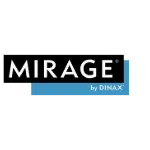
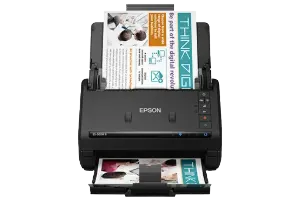
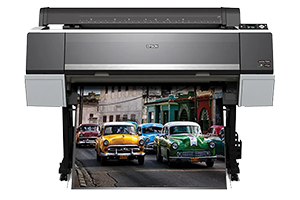
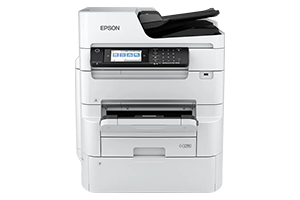
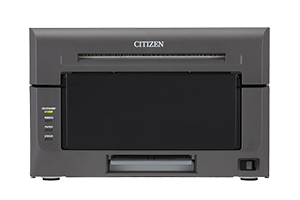
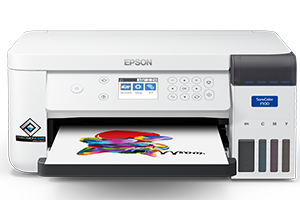
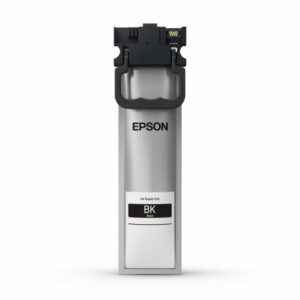
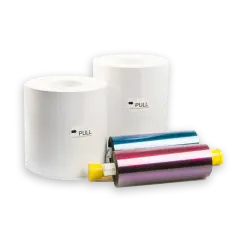







One Comment
Trackbacks and Pingbacks
[…] To gain a deeper understanding of sublimation technology and the printing process, please refer to the article Ultimate Guide to Dye Sublimation Printers […]